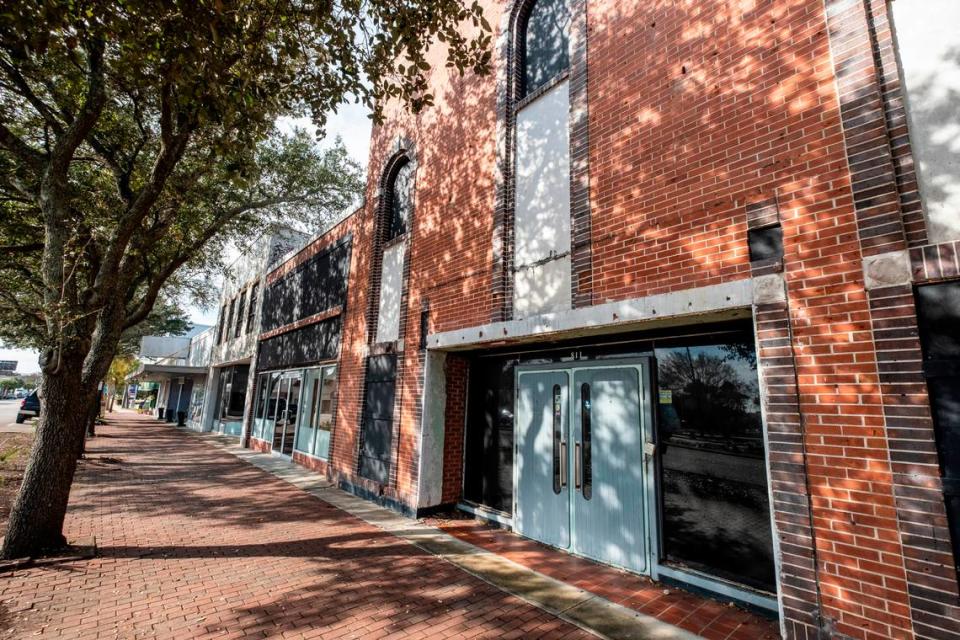Coastal Carolina sees downtown Myrtle Beach as key part of its future. What will it mean?
As 2020 began, Coastal Carolina leaders had an ambitious idea: Why not convert a near-empty former N. Kings Highway church into a charter school, bringing a surge of energy and traffic into Myrtle Beach’s downtown?
Economic projections suggested the kindergarten through eighth grade school would create almost 100 jobs and pump $8.4 million a year into the local economy — and if it worked, CCU could go even further with the creation of an urban campus.
The university went as far as writing a memorandum of understanding that made it to the City Council before talks collapsed, and the church today is on track to become an upscale food court.
But neither side have given up — drawn by the promise of young people, steady foot traffic and a major academic presence inside America’s fastest growing city.

CCU is partnering with the city to run a renovated theater and performing arts center along Broadway — a venue expected to draw more than 31,000 people annually by its third year of operation.
With 10,000 students and a half-billion dollar statewide economic impact, CCU’s brand would mesh well with the city’s, a longtime university leader says.
“Coastal has looked at various opportunities to teach classes or to offer lifelong learning opportunities in Conway, Myrtle Beach and sort of the Waccamaw neck. We try to be careful with that because we want to make sure whatever we’re investing outside of the main campus is going to have some benefit to the university,” Oran Smith, a CCU trustee since 1993, said.
“We’ve tried various ways of doing that but so many people in other parts of the country, they already assume we’re in Myrtle Beach, so I think we need to have a presence there for sure.”
A 12-page memo attached to CCU’s downtown campus pitch said much the same thing.
“The development of the new Coastal Carolina campus and its potential connectivity to other downtown assets will help create a place that offers a unique array of amenities, experiences, and uses,” planner James Lima wrote.
Places of this sort have proven effective in attracting high-skilled workers, firms,residents, visitors, and capital investment, making their presence an economic imperative.”
Most recently, CCU President Michael Benson was co-chairman of fundraising for Partnership Grand Strand, a newly created Myrtle Beach Area Chamber of Commerce foundation dedicated to regional economic development.
“Coastal Carolina University is excited to partner with Myrtle Beach in the revitalization of its downtown. Once completed, our new theater venue will allow us to bring a number of our activities closer to our constituents on the Grand Strand,” university spokesman Jerry Rashid said in an email. “The new space, along with an invigorated downtown, will positively impact CCU by expanding our visibility in the region”
Boosted by CCU’s athletics program — the Chants won the 2016 College World Series, and its women’s volleyball and football teams are postseason mainstays — Smith believes the university’s name recognition is higher than ever.
“I was in Greenville recently and I noticed that Furman University has sort of an information center right in the middle of downtown, so they can have a high profile there right in the middle of that booming downtown,” he said.

